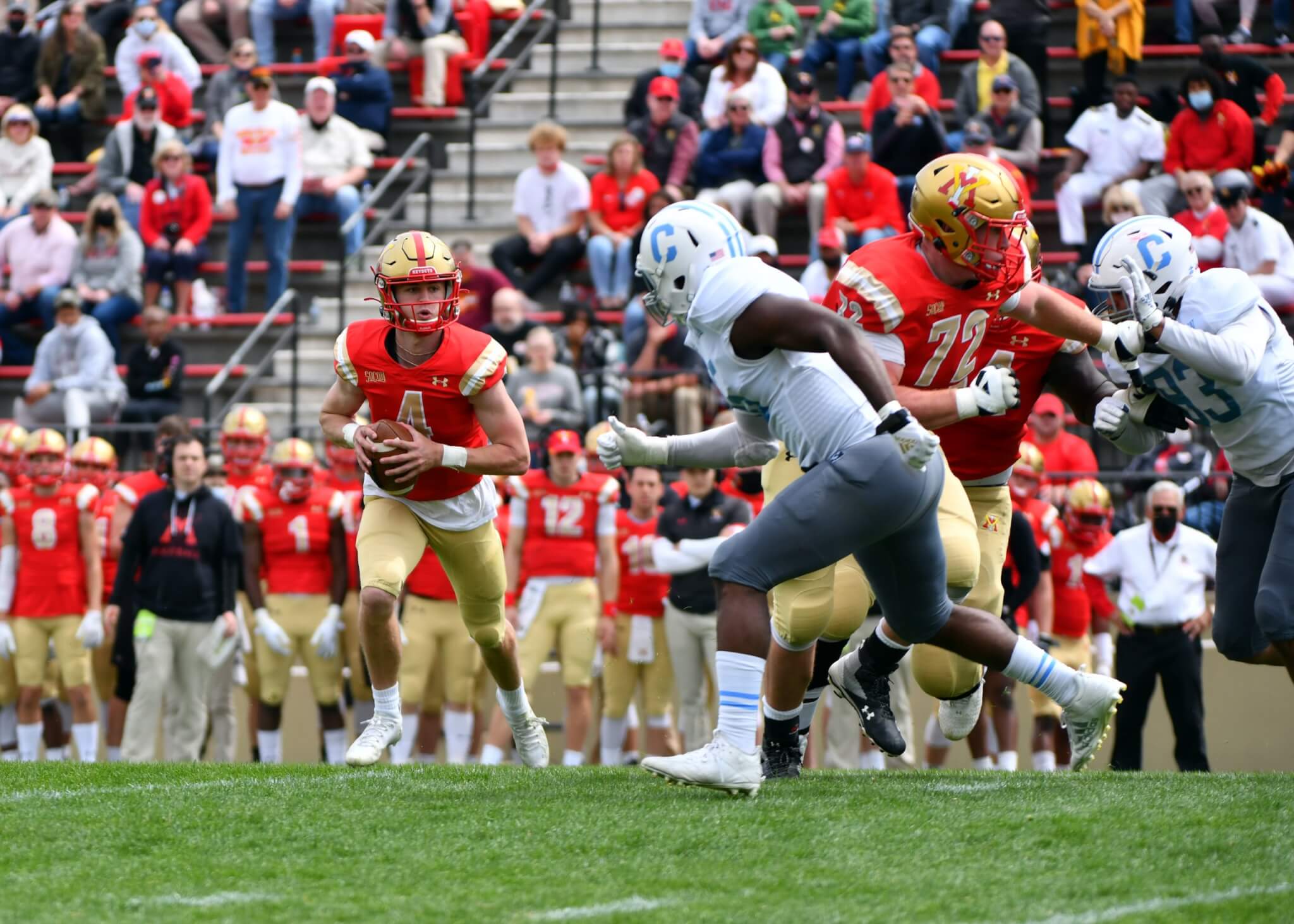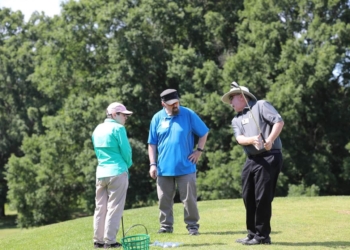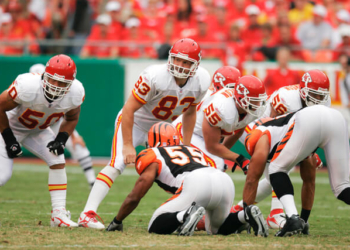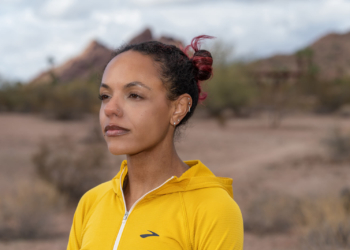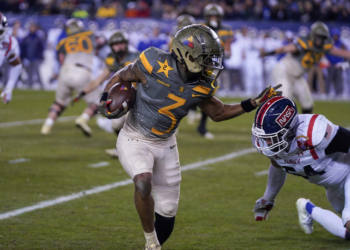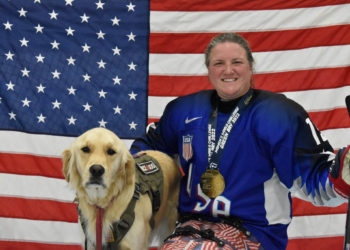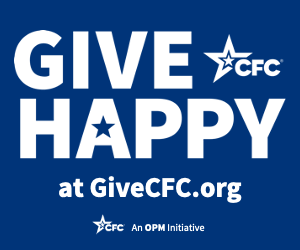The annual Military Classic of the South football game, which pits The Citadel Bulldogs against the Virginia Military Institute (VMI) Keydets, seems to fit the concept of “beyond a rivalry.”
On Oct. 2, these two programs will face off for the Classic’s 45th edition.
“The Citadel and VMI are two very unique schools, as you know,“ said former NFL player Brian Ruff, a Citadel graduate and All-American linebacker. “It’s not an academy. We don’t have a commitment to the military … and you have to go through all of the military. It doesn’t matter if you’re going to take the commission or not.”
The Military Classic has notched 76 meetings between the schools dating back more than 100 years. The Citadel leads the series 42–32–2. Both teams boast notable famous and infamous (or both) alumni: Gen. George Patton (one year at VMI); Gen. George Marshall, World War II Chief of Staff, Nobel Peace Prize winner for the Marshall Plan, and Secretary of State (VMI); Gen. William Westmoreland, commander of U.S. forces in Vietnam and Chief of Staff of the Army (The Citadel); Paul Maguire, NFL player and color commentator (The Citadel); NFL players Stump Mitchell and Travis Jervey (The Citadel); and “The Prince of Tides” author Pat Conroy (The Citadel).
In a small way, it’s a national game, said former VMI Football Coach and Citadel graduate Cal McCombs.
“These grads get spread out all over the country at different bases,” he said. “Some are Air Force, some are Army, some Marines. That makes it somewhat of a national game.”
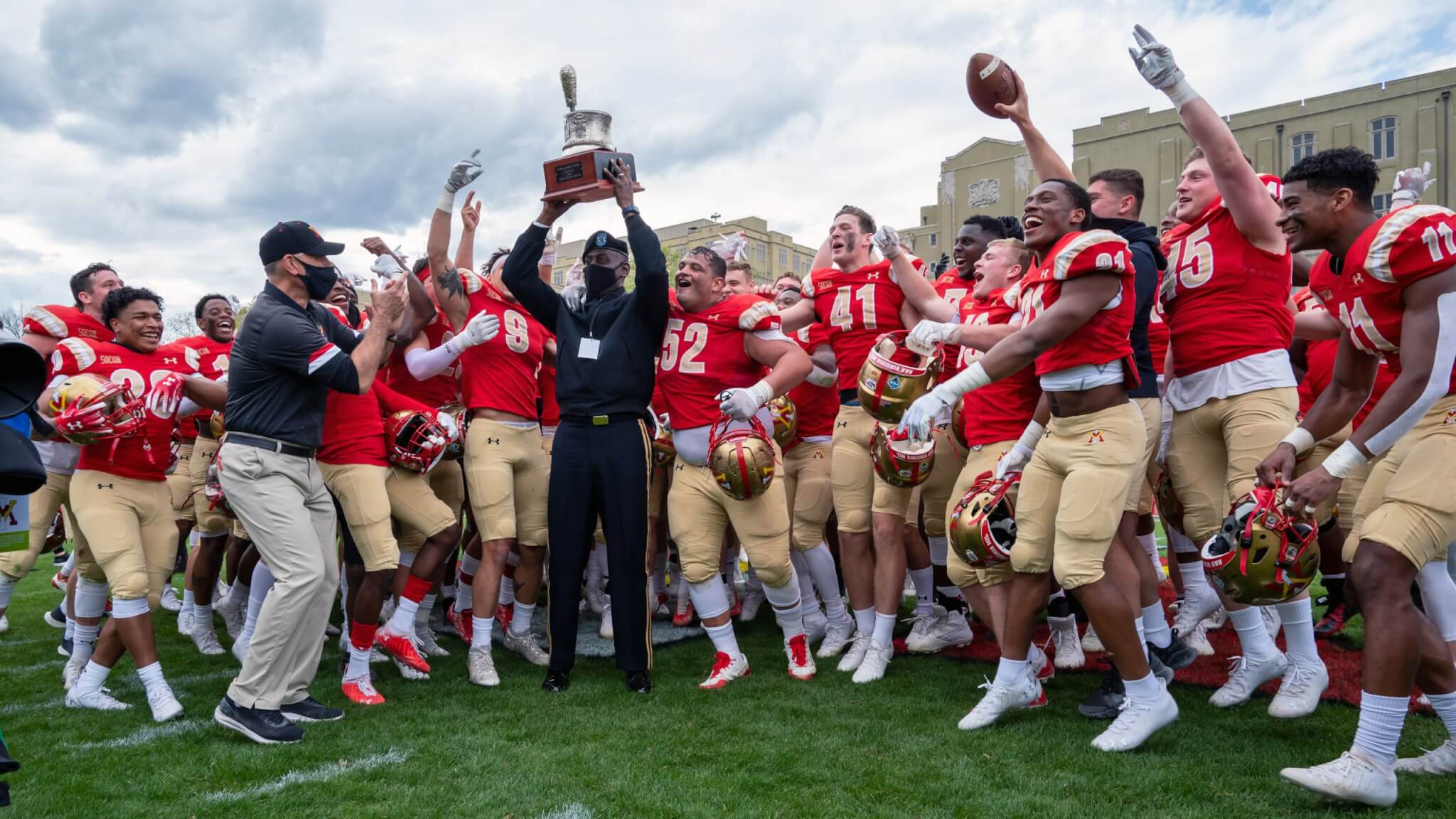
The teams last played in March during the spring pandemic season. VMI prevailed in that meeting and in 2019, with 2018 hotly contested but eventually won by the Bulldogs.
Both schools are like-minded in their purpose and missions, translating into a higher rivalry value, says VMI Coach Scott Wachenheim.
“They [The Citadel] had won quite a few in a row until the last two seasons,” he said. “So it’s good to be back on the winning side, which I think, give and take, makes the series even more competitive and more interesting to all the folks watching. I think The Citadel has a lot of top-notch players coming back … we have 32 freshmen on the team.”
He sees a very competitive matchup that will come down to one play.
“I’m hopeful that we can find a way to make that play and beat our rival,” he said.
The victor of this classic, annual gridiron battle receives the Silver Shako trophy for its efforts. The Shako trophy tradition rolled out in 1976 as the brainchild of Col. Jake Burrows, a former Citadel faculty athletic representative. Burrows came up with the shako idea, but the company producing a mold of it suggested a silver trophy. It cost around $530, and each school kicked in half of the needed funds. It is presented and received by the school presidents at midfield after the game.
A legendary leader
But discussion of this rivalry would be incomplete without mentioning coaching legend Bobby Ross. His shadow still seems to loom over Johnson Hagood (The Citadel) and Foster Stadiums (VMI). Ross, who coached Georgia Tech to a National Championship and led the San Diego Chargers to a Super Bowl, coached The Citadel from 1973-1977. But Ross is a VMI graduate.
Ruff says when he played at The Citadel, the most significant factor was the coach.
“That’s Bobby Ross, and he’s a VMI grad … he’s a former tank commander, so you talk about intense,” he said.
Ross was hot-blooded and passionate, and a strong sense of rivalry soon emerged from the Bulldog football environment, Ruff says.
“That’s who he was. It was very personal to him … the rivalry back then … I think it was a real intense one simply because he’s a VMI grad … the one ingredient that they don’t have today is they don’t have the head coach who is alumni.”
In Ruff’s junior year, they traveled to VMI’s home in Lexington, Virginia, and won 6-3.
“I still remember the locker room … he [Ross] was up on the table hollering and screaming,” recalls Ruff. “It was interesting.”
McCombs, who served as Air Force’s defensive coordinator and as a scout for the Denver Broncos, echoes Ruff’s observations.
“I was coaching with Bobby at The Citadel when he was here playing VMI,” McCombs said. “Bobby, he is a very intense guy. He did not want to lose to VMI.”
Bonded by an institution
Citadel and VMI players have a mutual respect that goes far beyond athleticism or skill set. It’s about the person, said Andy Solomon, a retired Citadel associate athletic director. The commonality of their experiences at a military institution, and what that represents, creates a distinctive bond, he said.
Solomon says people might understand the importance of the annual Citadel-VMI game, but they don’t comprehend its depth.
“What’s really fantastic is after the game, after they’ve battled each other, it’s not the typical sportsmanship,” he said. “It’s a little bit more than the regular sportsmanship. These guys know what each other goes through.”
Citadel and VMI are anomalies, Ruff says. Players at the schools are required to stand in formation, participate in marches, go through inspections, and pass their classes.
“They go through a whole bunch of crap that most college football players don’t have to do,” Ruff said. “There is a respect between the two institutions … they’re going through the same stuff you’re going through.”
Read comments

